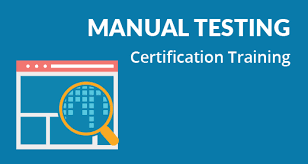Manual Testing Certification Training
Course Description
SkillHigher‘s Manual Testing Certification Training is designed to master on how to develop Test Cases and Scenarios which may be Specification-based (Black-Box Techniques) or Experience-based (Error Guessing Techniques) and ensuring Configuration Management, Risk Management and Defect Management.
Why this course ?
Testing is a vital process without which no software release can occur, it makes the software usable.
Software Testing market is expected to sky rise at 11 percent of CAGR in next 3 years- CA
Average salary of Software Tester is $77k – Indeed.com
Curriculums
-
In this module, you will learn the fundamental testing concepts. You will also understand the typical Software Development Life Cycle (SDLC) and different types of models involved. The different types of activities required for implementing a SDLC will be covered in this module.
Topics – History of Testing, What is Testing, Why Testing is required, What is a Defect, Testing principles, Quality Assurance and Quality control, Scope of Testing, When Should Testing Occur, Testing Constraints, Roles of the Software Tester, Overview on SDLC, Different Life Cycle models, Overview on STLC, AGILE Testing, etc.
-
Learning Objectives – In this module, you will learn all about Test Management activities. You will also understand the roles and responsibilities of the SDLC developers and your involvement/Contribution in each activity.
Topics – Test Strategy, Test Planning, Customization of the Test Process, Overview on Budgeting, Scheduling, Configuration management, and Risk management.
-
Learning Objectives – In this module, you will learn to create Test Scenarios, develop Test cases, Identify appropriate test data. At the end of this module, you will be able to write test cases on your own for sample apps. Traceability Matrix helps to bridge the Test coverage gaps.
Topics – Test Scenarios, Test cases, Test Data, Difference between Test Case and Test Scenario, Creating Test Cases for sample application, What is Traceability Matrix[TM], Sample TM
-
Learning Objectives – In this module, you will learn the importance of Reviews in Testing, Why to Review and How to Review? Writing effective test cases is a skill for a good tester. This module will give you an in depth study to understand Dynamic Test Case Writing Technique For Maximum Coverage with minimum Test Cases.
Topics – Static Techniques: Importance of reviews in STLC, Review Activities, Roles and Responsibilities during Review. Dynamic Techniques: Specification-based or black-box techniques, Boundary Value Analysis, Decision Table Testing, Equivalence Partitioning. Experience-based techniques: Error Guessing, Exploratory Testing.
-
Learning Objectives – In this module, you will understand the different Phases and types of Testing.
Topics – Levels of Testing: Unit Testing, Integration Testing, System Testing, User Acceptance Testing. Types of Testing: Regression Testing, Smoke Testing, Database Testing, Load Testing, Performance Testing, Compatibility Testing, Security Testing, Volume Testing, Stress Testing, Usability testing, Internationalization Testing, Localization Testing.
-
Learning Objectives – In this module, you will understand the Entry & Exit Criteria for Test Execution and how to execute the developed test cases.
Topics – Overview on Build and Release, Release Notes, Pre QA Checklist, Entry and Exit criteria, Test Execution, Hands on.
-
Learning Objectives – In this module, you will learn the difference between Defect Prevention and Discovery. You will understand the Life cycle of Defect and how to report a defect with all sufficient details. This module will enable you to log defects and provide hands on.
Topics – Defect Prevention, Defect Discovery, Defect Life Cycle, Severity and Priority, Overview on RCA, Hands on Identify and log Defects.
-
Learning Objectives – You are responsible to keep the stakeholders informed about the progress of your Test activities periodically. In this module, you will learn to prepare status reports on Test case development, Test case Execution, Defect Status report, Test Closure Reports. Real time examples will be showcased for better understanding. You will also learn how to interact with various teams and mitigate challenges.
Topics – Test Status Reports, Test Closure Reports, Tester and Developer, Team Collaboration, Client Interaction, Onshore/Offshore Model, Mitigate current challenges.
-
Learning Objectives – In software Testing, it is much important to measure the quality, cost and effectiveness of the project in line with testing. In this module, you will learn what is Metrics and how to collate Metrics and measure the quality of testing in various aspects.
Topics – Overview on Metrics & Measurements, Benefits of Test Metrics, Metrics Life Cycle, Types of Test Metrics.
-
Learning Objectives – In this module, you will learn the importance of Automation tools, overview of some tools like QTP & Selenium, benefits and usage of Quality center.
Topics – Why Automation, Overview of different Automation Tools – QTP and Selenium, Overview on Quality Center, FAQs.

